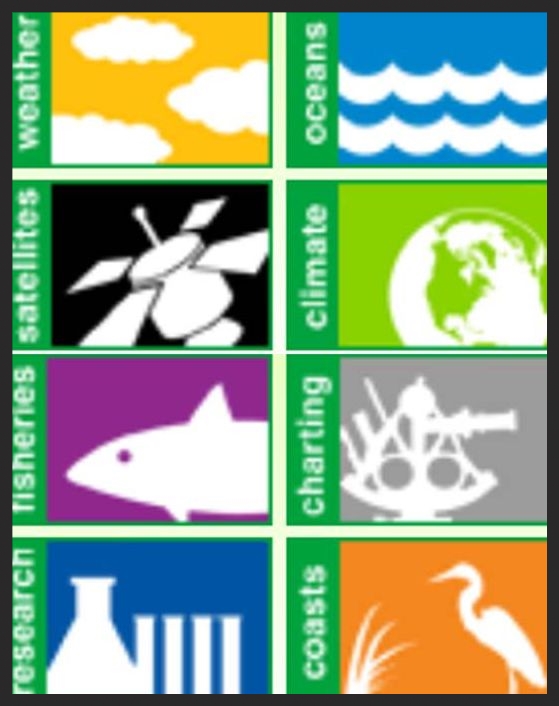9th National Summit on Coastal and Estuarine
Restoration and Management

Restore America's Estuaries (RAE
) and the Coastal States Organization (CSO) are proud to announce their collaboration and partnership to host the largest national gathering of the coastal restoration and management community for robust discussions that explore critical issues, solutions, and lessons learned that face our nation's coasts and estuaries.
We hope you share in our excitement as we launch this groundbreaking partnership and bring the Summit back to the West Coast for the first time since 2004.
We look forward to seeing you December 8-13, 2018 at the Long Beach Convention and Entertainment Center in Long Beach, California.
Jeff Benoit
President and CEO Restore America's Estuaries
Mary Munson
|
|
CSO hand delivers a letter to Congress showing widespread support for coastal management!
The Coastal States Organization (CSO) hand delivered a letter to the Chairs and Ranking Members of the House and Senate Appropriations Committees today signed by over 150 organizations supporting the National Coastal Zone Management Program, a National Oceanic and Atmospheric Administration (NOAA) federal-state partnership. The President's "skinny budget" released on March 16 proposes to zero out this critical and massively popular program. The letter can be found here: http://tinyurl.com/CSOfriends. The letter urges Congress to protect funding leveraged by the 35 Coastal States and Territories to look after, enhance, and develop their coastlines. Coastal States Organization represents the 35 U.S. Coastal States, Territories & Commonwealths on ocean, coastal and Great Lakes resource issues.
Signatories hail from all over the country, ranging from large national organizations to local community groups, Mayors representing coastal towns, and citizens who care about oceans and coasts. The CZM program provides needed resources that enable coastal communities to restore coastal infrastructure, address critical problems like erosion, and enhance working waterfronts. U.S. coastal and Great Lakes economies account for 149,000 business establishments, 3.0 million employees,
$117 billion in wages, and
$359 billion in gross domestic product.1
"For 45 years, Congress has matched state and local funds to enable America to have the most outstanding recreational, natural and commercial coastlines," states
Mary Munson, Executive Director of the Coastal States Organization. "This letter illustrates the widespread support of Coastal Management in communities like
Port Washington, Wisconsin;
Dauphin Island, Alabama;
Tillamook County, Oregon; and
Terrebonne Parish, Louisiana." Supporters from
Hawaii to
Puerto Rico weighed in.
CSO has documented a range of projects these funds have enabled at
https://tinyurl.com/czmasuccessreport. "People love coastal programs because they enable states to address their priorities," adds Munson. Examples of where funds have been used include restoring a barrier island in
Texas, developing a disaster recovery and redevelopment plan in
Georgia, relocating a threatened roadway in
California, and helping communities design shoreline protection structures in
Ohio.
|

At the Agencies
NOAA's Office of National Marine Sanctuaries (ONMS) is soliciting public input through
April 30, 2017, on a draft strategy to direct national and local efforts in the protection of America's underwater parks. Titled Our Vision for America's Treasured Ocean Places: A Five-Year Strategy for the National Marine Sanctuary System, the plan is designed to set a five-year course for managing some of the nation's most amazing ocean and Great Lakes places.
Read more
NOAA is seeking new members for its Hydrographic Services Review Panel, a federal advisory committee that advises the NOAA administrator on the agency's hydrographic programs, products and technology.
Read more
The U.S. Environmental Protection Agency has awarded $962,275 to the Commonwealth of the Northern Mariana Islands' Bureau of Environmental and Coastal Quality (BECQ) to strengthen its capacity to protect human health and the environment. "The Bureau of Environmental and Coastal Quality has been a great partner in environmental protection," said Alexis Strauss, EPA's Acting Regional Administrator for the Pacific Southwest. "We are pleased to support its programs committed to achieving a better environment for all the residents of CNMI."
Read more
|

In the News
A new technical report by the National Oceanic and Atmospheric Administration suggests that climate change-induced sea level rise over the course of this century, especially in Hawaii, may be far worse than predicted in the Intergovernmental Panel on Climate Change scenario that has been serving as a guide for a number of local efforts to address climate change impacts.
Read more
Natural protective coastal infrastructure, such as beaches, dunes and wetlands, create and sustain U.S. jobs, protect public resources and private property, and drive the U.S. economy. Congress would be wise to invest in these resources (and the science that supports them) despite the administration's budget blueprint that leaves U.S. coasts vulnerable by cutting vital programs and underfunding the science that protects lives, property and ecological resources.
Read more
|

In the States and Regions
East Coast
A couple researchers created fake mangroves in Manasota Key to bring back marine life that was lost from development. Along Florida's coasts are seawalls- built to prevent the shoreline from eroding. But that defense sometimes means removing natural habitats. Experts are now trying to turn these solid barriers into thriving ecosystems.
Read more
The Massachusetts Port Authority (Massport) is seeking a permit from the U.S. Army Corps of Engineers, New England District to conduct work in waters of the U.S. to construct a new wharf and to establish two deep water berths at the Conley Container Terminal in South Boston, Mass.
Read more
Gulf Coast
Texas has a new plan for protecting the coast, one that lays out a variety of ways to slow coastal erosion and protect lives and money in the process.
The Texas General Land Office says 65% of the state's shoreline is eroding at an average rate of about six feet per year, and even faster in some areas. That leaves people, ports and refineries increasingly vulnerable to storms.
Read more
Gov. John Bel Edwards joined state and local officials to celebrate the completion of the Caminada Headland, the state's largest restoration project to date. The $216 million project restored more than 1,000 acres of habitat and more than 13 miles of beach from Port Fourchon to Elmer's Island. "The impact of this project is quite significant because it works together with a chain of the other barrier islands to provide increased protection for internal communities as well as critical infrastructure like Port Fourchon," said Johnny Bradberry, executive assistant to the governor for coastal activities.
Read more
West Coast and Pacific Islands
To capture the value people place on the coastal environment, UH ecological economist Kirsten L.L. Oleson and former MS student Marcus Peng recently published a study in the journal Ecological Economics. Titled "Beach Recreationalists' Willingness to Pay and Economic Implications of Coastal Water Quality Problems in Hawaiʻi," the study found that improvements in coastal environmental conditions could result in large benefits for beach users on Oʻahu, in some cases valued in the hundreds of millions of dollars. This could justify increased spending on management and restoration.
Read more
Using a newly-developed computer model called "
CoSMoS-COAST" (Coastal Storm Modeling System - Coastal One-line Assimilated Simulation Tool) scientists predict that with limited human intervention, 31 to 67 percent of Southern California beaches may become completely eroded (up to existing coastal infrastructure or sea-cliffs) by the year 2100 under scenarios of sea-level rise of one to two meters.
Read more
Great Lakes
Saying the Trump administration's lack of funding for Great Lakes restoration is unacceptable, 63 Republicans and Democrats in the U.S. House on Thursday sent a letter to budget committee heads asking for full funding for the federal program.
The letter asks for $300 million for the Great Lakes Restoration Initiative for fiscal year 2018, which starts in October. That's the same amount Congress approved last year.
Read more
|
Announcements & More
NHDES Coastal Program and Partners Announce Coastal Resilience Grant Awards, Commit to Implement NH Coastal Risk and Hazard Commission Recommendations
Portsmouth, NH - The New Hampshire Department of Environmental Services (NHDES) Coastal Program is excited to announce five new projects to promote flood hazard preparedness and resilience in New Hampshire communities along the Atlantic Coast and Great Bay estuary. Together, these projects mobilize over $521,000 to focus on municipal and state coastal resilience planning and make available dedicated resources and technical assistance to New Hampshire's coastal zone municipalities.
Read more
OneNOAA Science Seminars, 2017
Title: NOAA Marine Debris Program-funded Microplastic Research and Current Research Priorities
Date & Time: Thu, April 13 - 1pm - 2 pm
Title: He'eia National Estuarine Research Reserve
Date & Time: May 11, 2017 - 1:00 pm - 2:00 pm
ET
Title: Coral Reefs and People in a High-CO2 World: Where Can Science Make a Difference to People?
Date & Time: May 18, 2017 - 12:00 pm - 1:00 pm ET
Seminars are open to the public. For remote access, location, abstracts and more, visit the OneNOAA Science Seminar Calendar at:
http://www.nodc.noaa.gov/seminars/
Seminars are posted in Eastern Time and subject to changes without notice; please check the web page for the latest seminar updates.
Events & Webinars
May 9 - 11, 2017
May 31- June 2, 2017
June 13 -15, 2017
June 25 -28, 2017
|
|